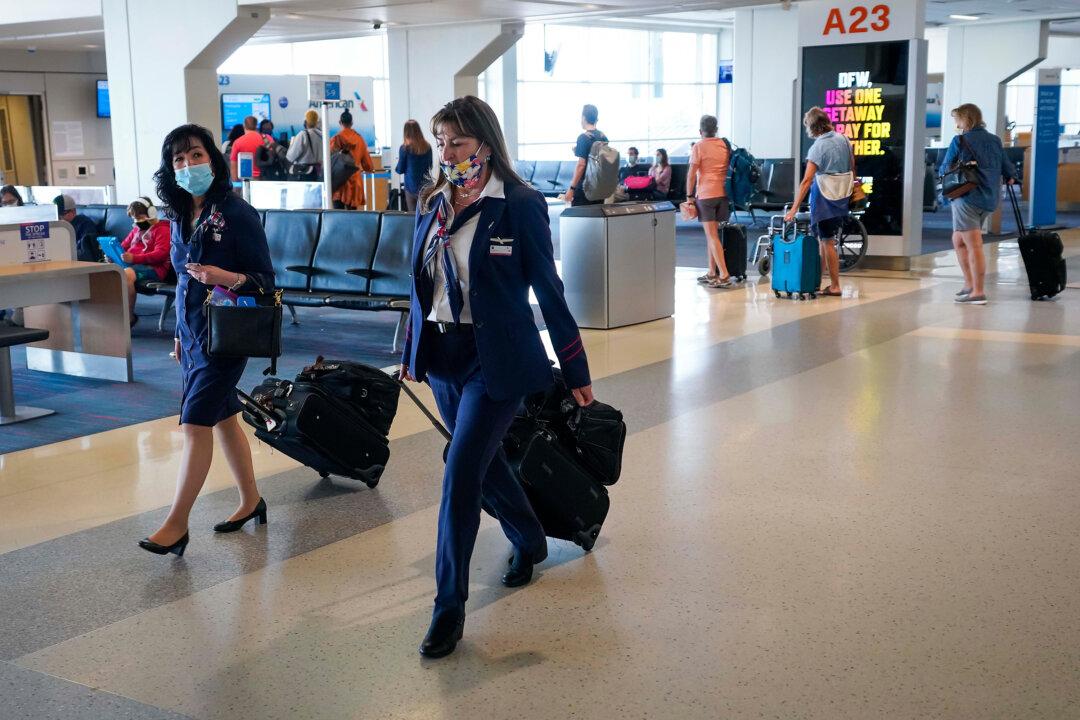The chief executives of some major U.S. airlines questioned on Dec. 15 how much wearing masks onboard flights helps to limit exposure to COVID-19, noting that an aircraft is “the safest place you can be.”
American Airlines CEO Doug Parker, Southwest Airlines CEO Gary Kelly, and United Airlines CEO Scott Kirby made the comments during a Senate Commerce committee hearing on aviation issues, titled “Oversight of the U.S. Airline Industry.”




